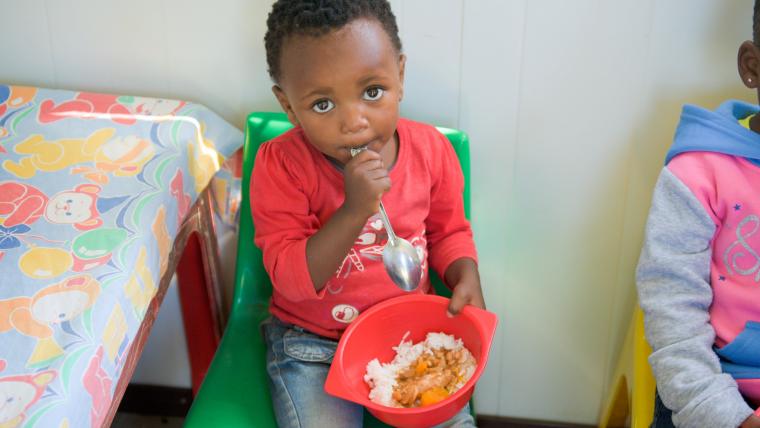
Meet the ex-addict going beyond methadone treatment to guide drug users to recovery
It is nearly impossible to do anything when your only concern is getting the next fix. Msizi Ngubane never imagined he would end up this deep in the depths of drug addiction. But having been raised by his grandmother who beat him out of frustration at her poverty-stricken circumstances, Ngubane began sniffing glue at the age of 12 to block out the pain. As he got older he turned to heavier substances – eventually leaving his home and living on the streets of Kwa-Zulu Natal to be less of a burden to his family. Ngubane desperately wanted to improve his life, but try as he might, he could not break away from chasing the next high. “When you're using drugs, you have to hustle. The moment you finish hustling, you have to smoke. The moment you finish smoking, you have to hustle,” he explains. “I needed to change my environment, but my addiction made that impossible.” Help came in the form of another drug – methadone. Ngubane had heard that the opioid, used by some rehabilitation centres to ease withdrawal symptoms and reduce cravings, was being offered by Bellhaven Harm Reduction Centre. Having spent almost every Rand he had on drugs, Msizi couldn’t believe that he could access methadone at the Durban-based institute for free.
For the average citizen, the cost of private rehabilitation centres is exorbitant while public facilities are limited. Yet it’s estimated that as much as 20% of the South African population has a substance abuse problem, while methamphetamine and heroin are becoming more readily available. Bellhaven was established in 2020, especially for low-income and homeless drug users for whom rehab is inaccessible. Having found that many substance abusers on the streets of Durban were addicted to heroin, the team embarked on a withdrawal management programme that relied on opioid substitution therapy. In addition to offering daily methadone treatment, the team further sought to reduce harm among drug users by providing clean needles and syringes to prevent the spread of blood-related diseases among users. This unconventional method enables them to work directly with users to test and provide medication for diseases such as HIV and TB, as well as offer ablution facilities, daily meals, a recreational space to connect with others, and psychosocial services which are fundamental to long-term recovery.
In Ngubane’s case, the methadone treatment helped him slow down and begin the road to recovery. “Seeing the positive impact that this had on my life, I decided to bridge the gap between Bellhaven's health experts and drug users,” he says. While their approach has proved to be successful with Ngubane, it’s understandable that for the majority of users on the street, approaching a medical facility with healthcare workers whose lives are worlds apart can be daunting. “When the nurse doesn't understand what is going on with one of my peers, it's easy for me to explain because I know what is going on with my brother,” he says. Now working at Bellhaven as a peer supporter during group sessions, Ngubane is enhancing the institute’s methadone programme.
For users who struggle to take the first step to getting clean, the substitute opioid can give them back the time and strength to do so – but it’s not a final solution. Drug addiction requires a lifelong commitment to recovery. Getting professional support to understand triggering behaviour, as well as having a supportive network and environment that’s conducive to healing is paramount. That’s why Ngubane’s goal is twofold: to connect with and transform the lives of drug users, but also the society they live in and the approaches taken to heal them. “Drug use is a sickness and it should be treated as such,” he says. “Through greater awareness and communication, we can break the stigma.”






























Please sign in to leave a comment